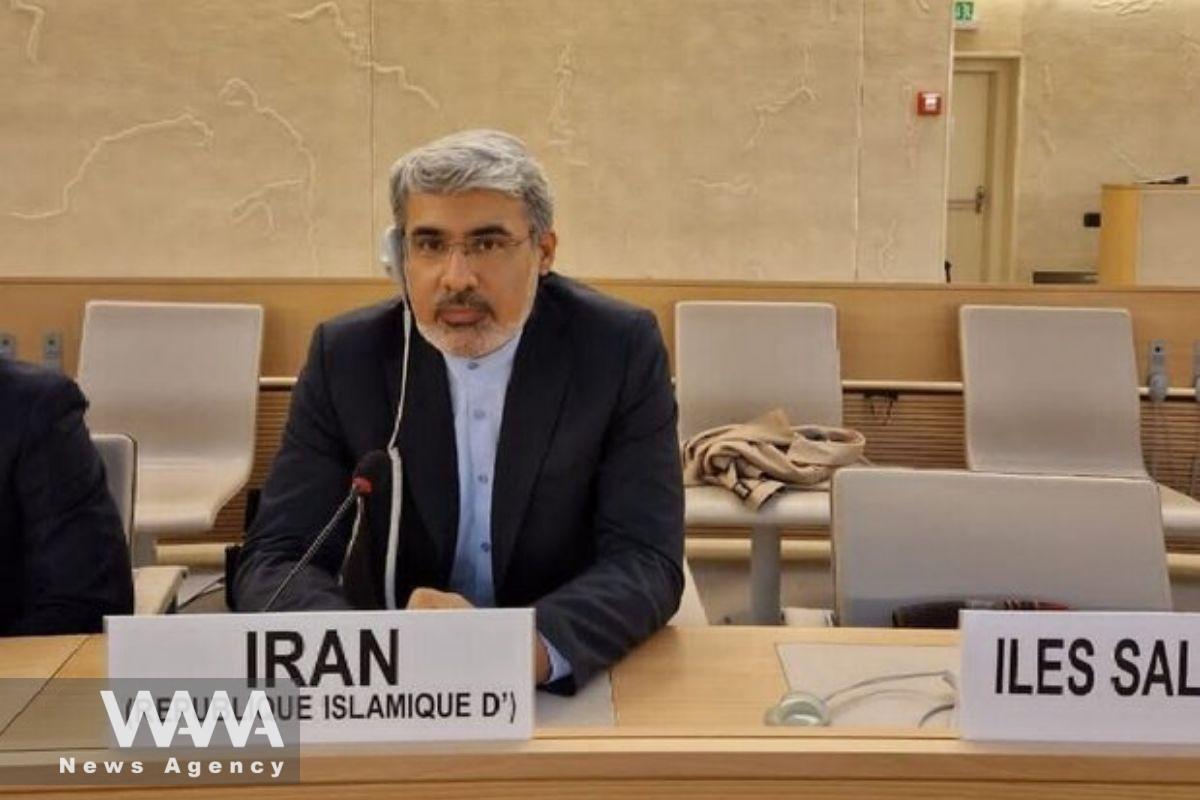Iranian Envoy Urges Global Action Against Islamophobia
WANA (Mar 26) – Iran’s ambassador and permanent representative to the UN Office in Geneva has criticized the rise of Islamophobia in Western countries, calling for government accountability and a stronger role for international organizations in addressing the issue.
Speaking at a meeting marking the International Day to Combat Islamophobia, Ali Bahraini commended the Organization of Islamic Cooperation (OIC) for organizing the event.
Held at the Palais des Nations with representatives from both member and non-member states, the session highlighted efforts to counter religious discrimination.
Bahraini described the adoption of UN General Assembly Resolution 76/254 on March 15, 2022, as a significant step toward addressing faith-based discrimination.
“Islamophobia is an irrational and unjustified fear of Islam’s presence and expansion in predominantly non-Muslim societies,” Bahraini stated.
He warned that the persistence of this fear, reinforced by negative stereotypes, has led to increasing discrimination, social and political exclusion, verbal abuse, and even physical violence against Muslims in host societies.
The Iranian envoy also expressed concern over the rise of hate speech in Western nations and the misuse of modern technology and media platforms to spread anti-Islamic sentiments.
He urged the international community to combat religious discrimination and Islamophobia through education, dialogue, and efforts to dismantle harmful stereotypes at all levels of society.
Bahraini emphasized that governments bear primary responsibility for addressing this issue, stressing the need for collective action by individuals and social institutions to promote mutual understanding and respect for diverse perspectives and beliefs.
Referring to international human rights frameworks, he reaffirmed the right to freedom of expression and belief—provided it aligns with respect for human dignity.
He argued that Islamophobia, or any attack on Islamic religious symbols, does not constitute legitimate free speech but rather a form of prejudice with harmful consequences.
This year’s meeting was held in line with Resolution 76/254, which calls for continued efforts to raise awareness about racial and religious discrimination, examine emerging challenges in combating hate speech, and develop legal and strategic reforms to foster global dialogue, peace, mutual respect, and religious diversity.
Adopted unanimously in 2022, the resolution underscores the need for sustained international cooperation in countering Islamophobia and promoting interfaith understanding at national, regional, and global levels.












